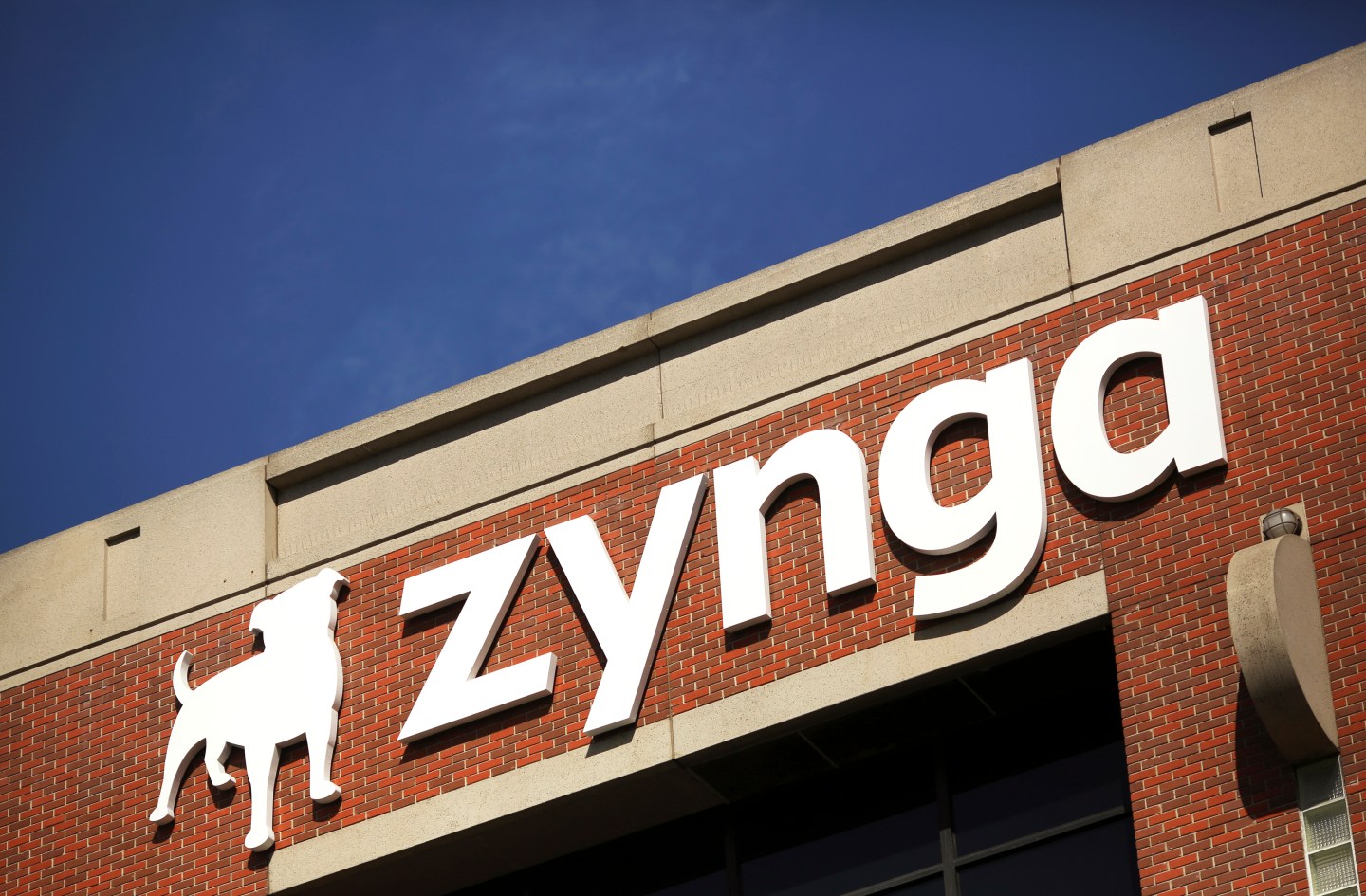This spring, Mark Pincus returned to Zynga (ZNGA), the gaming company he founded in 2007, to attempt the near-impossible: a turnaround of a consumer tech company. Pincus, you might remember, was ousted in 2013 after the company’s share price cratered from over $14 a share to under $3.
Now he’s back to save the company. But Zynga’s cheap valuation, pile of cash, and real estate holdings has plenty of investors wondering, why is he doing it in the public market?
Zynga, the argument goes, should be private.
It’s simple math: The company has $1.1 billion in cash on its balance sheet. It owns real estate worth at least $228 million. And brings in almost $700 million in revenue. But Zynga’s market cap is a paltry $2.26 billion. It hasn’t traded above $3 billion in over a year. “There is no good reason why it’s still public,” says Richard Greenfield, managing director with BTIG. “They don’t need the public’s capital to run their business.”
Indeed, at least four different groups of investors have plotted takeover bids for Zynga over the last year, according to people familiar with the situation. One group included former Facebook executive Chamath Palihaptiya in partnership with financial partners, another was spearheaded by Los Angeles-based incubator Science Inc. Those bids fell apart when Pincus returned in April. Zynga declined to comment.
At least two of the plans involved a “cash extraction” strategy, where the company’s new owners strip all of the costs from the company by selling the real estate and sending labor overseas. Growth would come through acquisitions, rather than in-house development. That strategy is less exciting, but easier and more profitable, than trying to create the next hit game from scratch.
The problem is that plan was a lot more promising four months ago, when Microsoft exec Don Mattrick was still running Zynga. He was supposed to transform the company from a primarily Facebook-based game network into a mobile games company, and he was failing. Even as gaming soared on mobile devices, Zynga struggled to produce hits for smartphones. Competitors like King Digital Entertainment (KING) and Supercell leapfrogged it. According to IDG, the mobile games market generated $17.5 billion in revenues in 2014 and will hit $27 billion in the next five years.
Under Mattrick, Zynga’s annual revenue shrank from $1.28 billion in 2012 to $690 million in 2014. Net losses widened from $209 million in 2012 to $225 million in 2014.
Costs increased as the company overpaid its executives and spent $100 million building its own data centers. Even as shares plummeted under Mattrick’s leadership, Zynga’s board approved a $57.8 million compensation package for him in 2014.
But Zynga’s biggest drain on costs came from its bloated headcount. Zynga employs 2,000 workers to earn $690 million in revenue. Contrast that with Supercell, which employs 150 people and last year earned $1.7 billion with $565 million in profits.
Seeing these potential efficiencies, Palihapitiya and his consortium prepared a tender offer for Zynga. But they were too late. Pincus had already planned his return to replace Mattrick.
In the last four months, Pincus has addressed some of the problems mentioned above. In May, Zynga shut down the data centers, moving its games to Amazon’s cloud computing platform. Pincus also announced he would cut $100 million in costs, laying off 18% of the staff, or 364 people.
But Zynga needs to do a lot more if it wants to compete with Supercell and revive its dismal stock price. Analysts have called for more job cuts. Beyond that, Zynga needs to somehow create new hit games. The question is whether it would be better off doing that as a private company.
Zynga has two options: There’s the Dell route of selling to a private investor to complete its turnaround behind closed doors.
Or there is the Electronic Arts (EA) route, where Zynga makes big financial bets on building potential mega-hits. That’s the direction Pincus appears to be taking now. “He doesn’t want to run a non-innovative tech company that just throws off money,” one observer says. “He wants to build new stuff.”
That attitude may thwart any potential buyout. After all, no deal can happen without Pincus’ approval – he owns majority of the voting power of Zynga’s stock.












